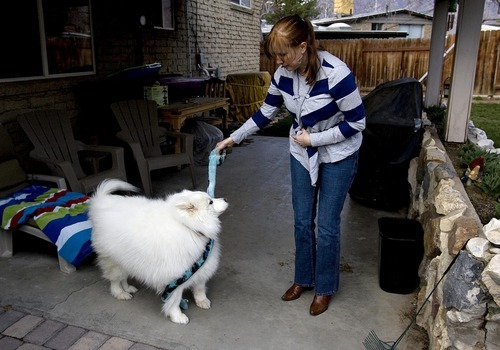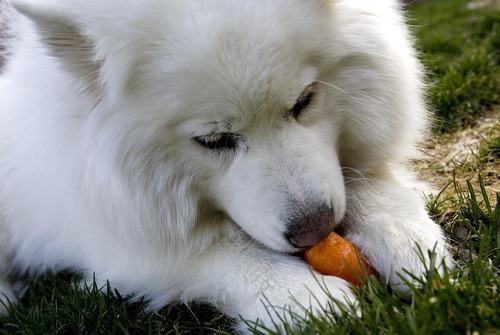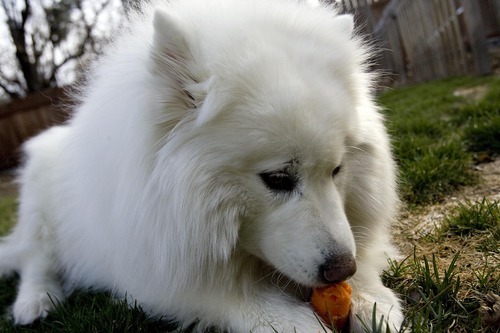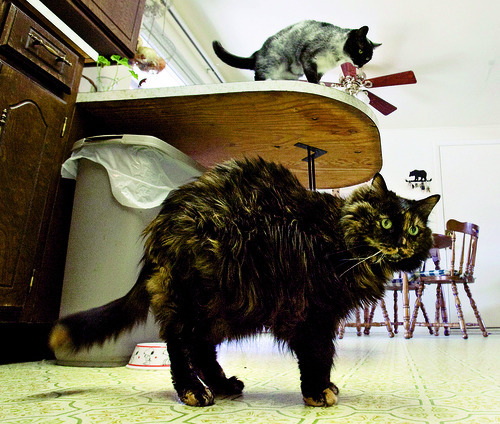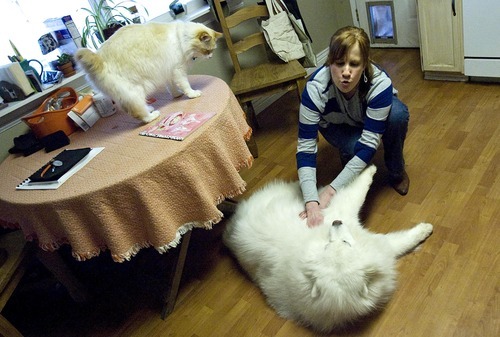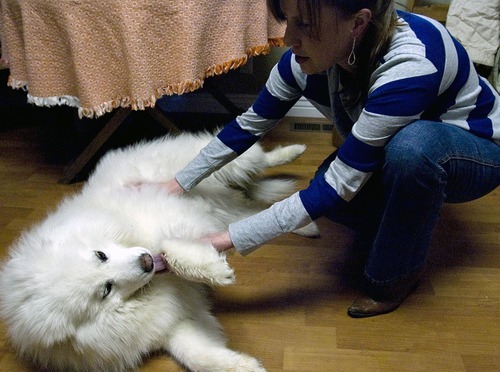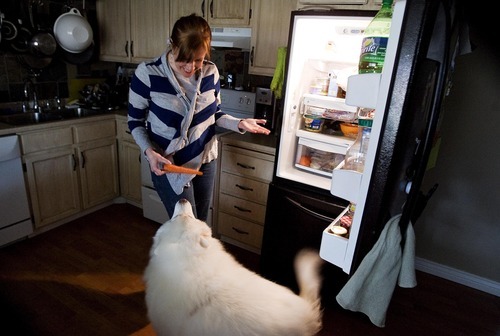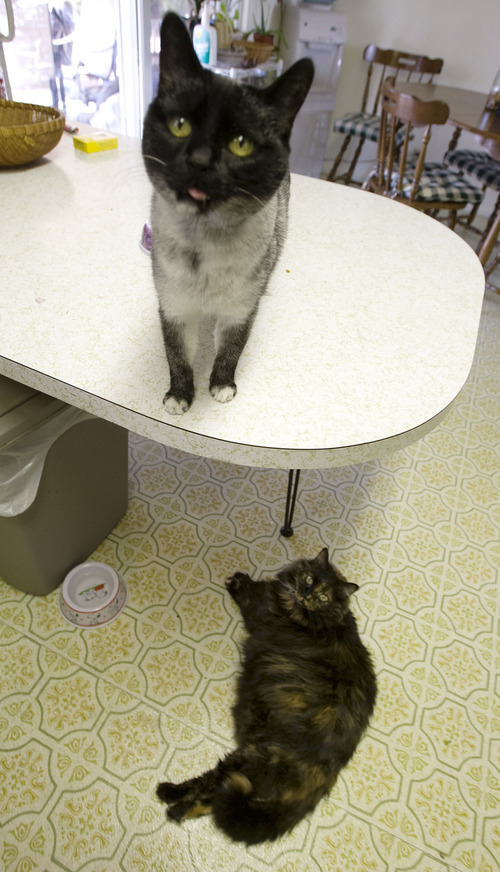This is an archived article that was published on sltrib.com in 2011, and information in the article may be outdated. It is provided only for personal research purposes and may not be reprinted.
It started with a few extra snacks between meals, but it wasn't long before little 7-year-old Tooly got so plump, she couldn't make it up and down the stairs. That's when Kathy Olympia knew it was time to put her miniature dachshund on a diet.
At her heaviest, Tooly weighed 18 pounds, almost twice her normal weight. Besides treats, the extra weight came from table scraps and owners who just couldn't say "no" to her furry face.
"She's just so cute when she begs, so you give her something," Olympia said. "But we realized this was really going to impact her health if we kept this up."
It's a common problem. More than half of all the cats and dogs in America are obese or overweight, according to a recent study by the Association for Pet Obesity Prevention (APOP). That's about 50 million cats and 43 million dogs.
The consequences of being overweight are just as serious for animals as they are for humans, veterinarians say. Obese pets can suffer from diabetes, heart failure, liver disease, degenerative joints and a host of other problems.
"Those small treats we don't think twice about are actually bad for pets," said James Barton, a veterinarian at Sugar House Veterinary Hospital. "If you give a cookie to a 20-pound dog, it's the equivalent of a hamburger."
—
Pet crusader • Ernie Ward crusades for better pet health, but his secret agenda is helping people.
"If you look at the rise of obesity in humans, pet obesity is mirroring it," said Ward, the founder of APOP and a veterinarian in Calabash, N.C. "That's the drawback to being a pet these days, sharing a life with a person who isn't taking physical care of themselves."
It's not that human food is bad for pets, it's that bad human foods are bad for everyone, said Ward, who also is a certified marathon and triathlon trainer.
"It's so sad to see a pet's life cut short because of poor diet and lifestyle," Ward said. "There's no reason a cat should develop stage 2 diabetes. It is completely preventable, but now it's incurable. And people can see what is going to happen to them if they don't change their lifestyles in 15 years."
—
On a diet • Getting pets back to a healthy weight isn't easy, but it is possible.
Just look at Tooly, who is now a svelte 12½ pounds thanks to more exercise, restricted food portions and an appetite suppressant prescribed by her veterinarian.
Measuring how much food a pet receives is the best way to shed pounds, especially for cats who don't run or go on walks like dogs.
Barton said owners must also be vigilant about extra treats and be wary of the "anonymous treat-givers" — family and friends who are sneaking extras to your pet without you knowing.
"Pets don't make choices; you make the choices for them," Barton said. "If you feed it, they'll eat it. If you don't, they won't. It's that simple."
But not all treats are off limits. Foods that are good for humans, like whole grains, fruits and vegetables, are also good for pets.
Julie Bazgan's 5-year-old Samoyed, Sadie, has lost 15 pounds by eating bananas, carrots and sweet potatoes and taking nightly walks. Bazgan adopted Sadie six months ago from an Ogden shelter. She was 30 pounds overweight at the time and had difficulty walking and even standing up.
"She's just such a sweetie. It's really nice to see her finally doing well and living [like a regular] pet," Bazgan said.
Cinder was an 18-pound cat who developed diabetes. Thanks to a strict food routine, Cinder lost 5 ½ pounds since last year, with only half a pound to go, said her owner Sophie Thomas.
"Without the extra weight, she's more mobile and she's much more eager to play and chase toys," Thomas said. "It really is up to the owners to keep them healthy." —
Diet tips for pets
Measure appropriate amounts of food and establish a food routine. Portion suggestions can be found on pet food packaging.
Cut back on treats and make sure family and friends know not to sneak them extras.
Give pets more exercise. Play with them in the yard and go on walks.
Most important, consult a veterinarian before starting any diet regimen. A drastic reduction in food can result in liver failure for cats.
More information: http://www.petobesityprevention.com


